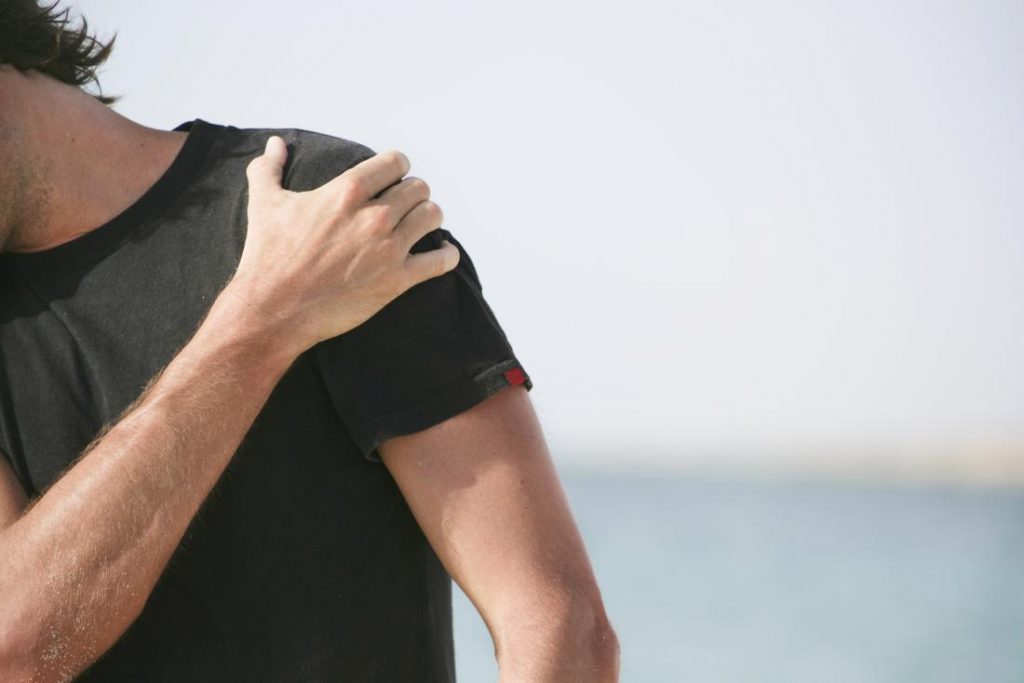
Dr Nick Ferran is an experienced consultant shoulder and elbow surgeon based in west London.
If you feel that you are in need of his services, or would like further information on what he could offer you, his contact details are at the bottom of this page.
Gym related injuries or pain to the shoulder or elbow are common in my practice so I thought I would share some tips on how you can avoid these problems and still take part in exercise.
As with most practical things in life proper technique is key. Many gyms offer an introductory session with a personal trainer to teach you how to use equipment safely but it is difficult to learn every exercise in one session and very easy to slip into poor form and bad habits when working out on your own. I would recommend checking in with a personal or gym trainer regularly to ensure your technique is safe especially if you are experiencing pain. Often just small adjustments in hand position can affect shoulder symptoms.
While an injury can occur with any exercise done poorly, certain exercises are more prone to causing injuries around the shoulder and elbow. Pectoralis major tendon ruptures have many causes but the most common mechanism of injury is the bench press exercise. Shoulder position during this exercise and the amount of weight applied can increase the risk of injury. Biceps curls done with weight of greater than 68kg put the distal biceps tendon at the elbow at risk of rupture. Pull-downs (lat pull-downs) should be performed by pulling the bar toward the chest, pulling the par down behind the head and over the shoulders is a common mistake that can result in shoulder injuries.
Muscles, ligaments, tendons, and bone can adapt to increasing load as long as the increase in load is gradual, however, all tissues have their limit and if they are overloaded they will fail. Training and weightlifting programmes need to be sensible, safe and practical so again the advice of a trainer is useful in this regard. If increasing weight causes pain listen to your body, take a step back and go down to a lower weight before trying to gradually increase again.
Recovery is an important part of training, exercise, and sport. Over-training without rest and recovery is unhealthy and risky so even without pain, a good training routine should have built in rest days. If pain or an injury is experienced during training, rest is key to allow tissues to settle and recover before trying to exercise again. Training through significant pain isn’t advised.
If an injury or pain occurs during exercise and persists after a period of rest this would be a worrying sign. Sudden occurrence of weakness, bruising, swelling, or a change in shape of the muscles around the shoulder, elbow or chest after a gym injury could be a sign of tendon rupture. If any of these signs or symptoms occur I would strongly recommend seeking medical advice so that a serious injury is not missed.
Shoulder & Elbow London Ltd.
Mr. Nick Ferran
Consultant Shoulder & Elbow Surgeon
Clinics in:
Chelsea
Chiswick
St. Johns Wood
Harrow
Subscribe on YouTube: tinyurl.com/ShoulderTube
Book appointments:
Phone: 02071646312
E-mail: admin@shoulderandelbowlondon.com
Online: www.shoulderandelbowlondon.com
You’ll receive all the latest news, posts and information regarding health and fitness.
You’ll receive all the latest news, posts and information regarding health and fitness.
You’ll receive all the latest news, posts and information regarding health and fitness.